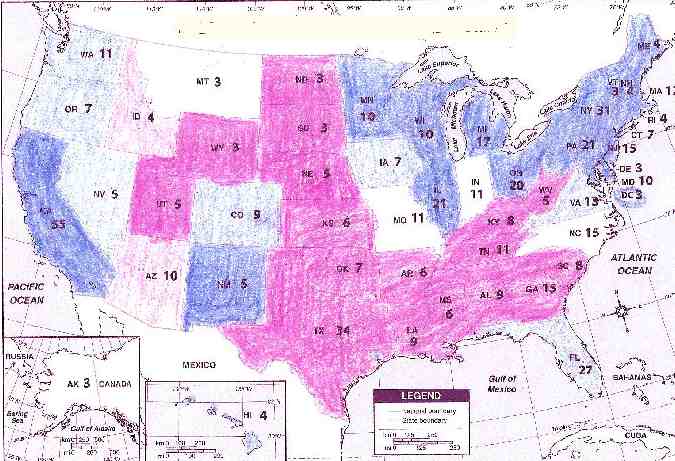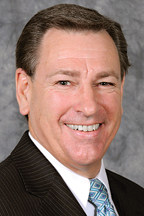 AT&T is seeking freedom from regulation, oversight and the right to abandon its landline network with the assistance of Connecticut legislators who modeled a state deregulation measure on recommendations from the corporate-funded, AT&T-backed, American Legislative Exchange Council (ALEC).
AT&T is seeking freedom from regulation, oversight and the right to abandon its landline network with the assistance of Connecticut legislators who modeled a state deregulation measure on recommendations from the corporate-funded, AT&T-backed, American Legislative Exchange Council (ALEC).
The legislature’s Energy and Technology Committee voted 20-4 to approve the bill, which would eliminate service and oversight requirements and allow the phone company to raise rates. AT&T has lost most of its landline customers since assuming control of service in Connecticut. Today, only 28 percent of homes in the state choose AT&T for their home phone service. The Office of Consumer Counsel suggests AT&T’s poor performance in the state may have had a lot to do with that, citing the company’s slow job of restoring phone service after a series of storms affected the state.
AT&T wants the power to drop telephone service altogether in areas considered unprofitable to repair or continue to serve. A trio of company-backed bills in the state legislature would hand them that right.
House Bills 6401, 6402 and Senate Bill 888 are all measures that would deregulate the phone company and open public lands for placing cell towers, limit regulator oversight and cut reporting requirements that let regulators track telephone rates.
None of the measures have been introduced on a whim, contend critics. The Connecticut Citizen Action Group released a report showing links between corporate-written model bills produced by ALEC and the current legislation before the Connecticut General Assembly.
 HB 6401: House Bill 6401 strips the Public Utilities Review Authority (PURA) of their ability to regulate Voice Over Internet Protocol (VoIP) telephone services. An emerging market, this bill creates deregulation for the sake of deregulation.
HB 6401: House Bill 6401 strips the Public Utilities Review Authority (PURA) of their ability to regulate Voice Over Internet Protocol (VoIP) telephone services. An emerging market, this bill creates deregulation for the sake of deregulation.
HB 6402: House Bill 6402 eliminates the right of regulators to oversee AT&T to make sure it has some form of accountability to the public. The section on annual audits has been gutted, making it impossible to protect the public from rate-fixing. More importantly, it includes a provision to allow AT&T to end service to any customer it wants upon 30 days’ written notice.
SB 888: Senate Bill 888 has an ALEC-drafted provision that allows cell phone towers to be built on public lands on a presumption that the will of telecommunications companies is in the interest of the public good.
“If AT&T is allowed to drop service in unprofitable areas at their sole discretion, if they’re allowed to let service outages drag on for weeks with no consequences, if they’re allowed to jack up rates — of course they will,” Daniel Ravizza of Connecticut Citizen Action Group said in a statement. “‘Trust me’ is not a good enough guarantee for Connecticut consumers.”
ALEC and AT&T’s Legislative Chorus
- Rep. Debra Lee Hovey of Monroe and Newtown and Sen. Kevin Witkos of Simsbury, Avon, and Torrington serve as ALEC’s chair people for the state;
- Rep. John Piscopo is currently serving as ALEC’s National Chair;
- Rep. Lonnie Reed (D-Branford), chairwoman of the state legislature’s Energy and Technology Committee defended the measures saying they would give certainty to the telecom industry which would attract more investment in broadband and phone services. But she admitted once consumers learned of the proposed bills, things got heated quickly. “Some of this stuff is radioactive,” she told The Hartford Courant. “It’s hard even if you change the language to convince people otherwise;”
- “The arguments by opponents of HB 6402 have been shown to be without merit so now they’re resorting to desperate measures and innuendo,” said AT&T spokesman Chuck Coursey. “The fact is modernizing our telecom rules this year will help encourage private investment, job growth and consumer choice at a time when Connecticut needs it most;”
- John Emra is AT&T’s chief lobbyist in Connecticut. Emra was behind last year’s attempts to advance similar deregulation. Emra serves as the Executive Director of External Affairs for AT&T and as the chair of ALEC Connecticut.
“This is part of a national strategy by ALEC to advance a pro-corporate agenda at the expense of consumers,” James Browning, regional director of state operations for Common Cause, said in a statement. “We’ve seen the destructive impact these measures have had in other states. AT&T should not be allowed to get away with it here in Connecticut.”
The New Haven Register notes Browning said the three bills — SB888, HB6401 and HB6402 — closely resemble model legislation ALEC’s legislative template used in 20 other states where telecommunications regulatory overhaul has occurred. In 17 of those 20 states, telecommunications rates have increase, and in some cases, the cost of service has doubled.
Connecticut consumers can share their feelings about the bills through e-mail with their elected officials.


 Subscribe
Subscribe Cable One has announced it will invest $60 million in network upgrades across 42 cable systems in its mostly rural footprint to enhance reliability and deliver faster Internet service.
Cable One has announced it will invest $60 million in network upgrades across 42 cable systems in its mostly rural footprint to enhance reliability and deliver faster Internet service.


 West Virginia’s broadband future is up for hot debate in the state legislature as Internet haves and have nots fight over whether the state should spend money to bring broadband to those lacking it or improve service for those that do.
West Virginia’s broadband future is up for hot debate in the state legislature as Internet haves and have nots fight over whether the state should spend money to bring broadband to those lacking it or improve service for those that do.
 The Federal Communications Commission has opened the door for Time Warner Cable to raise basic cable rates in several parts of
The Federal Communications Commission has opened the door for Time Warner Cable to raise basic cable rates in several parts of 